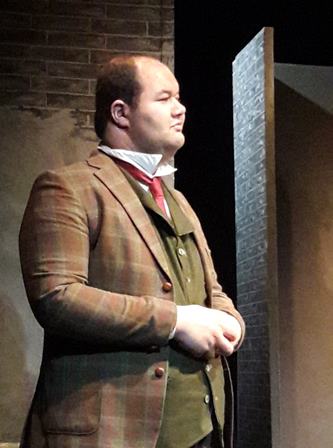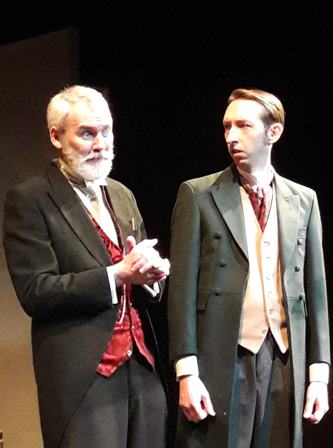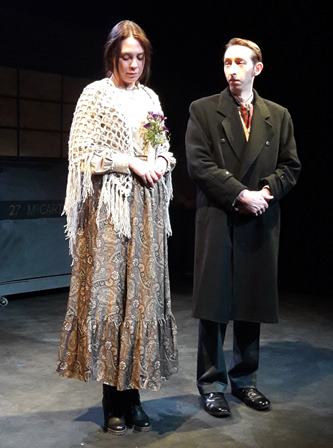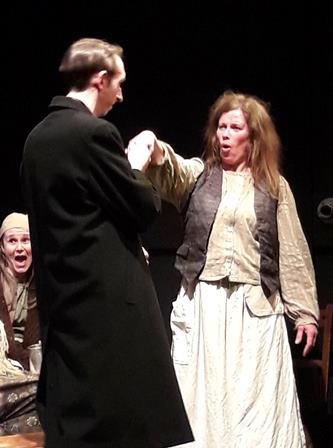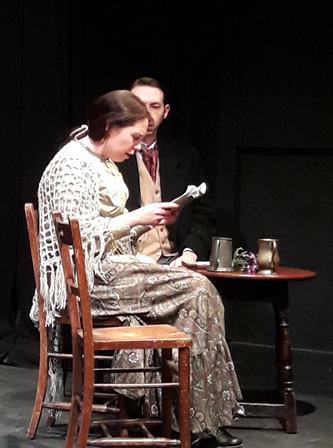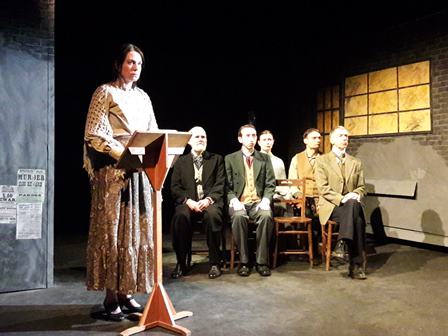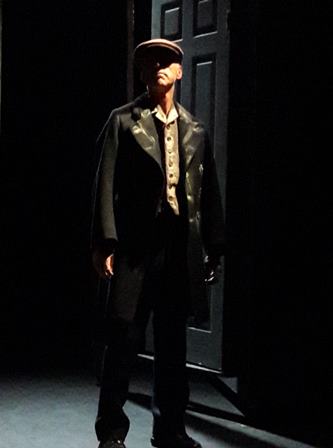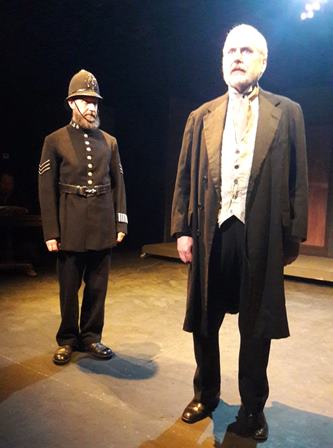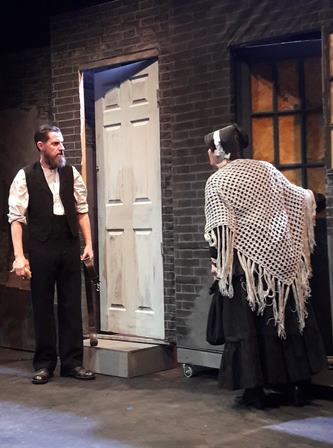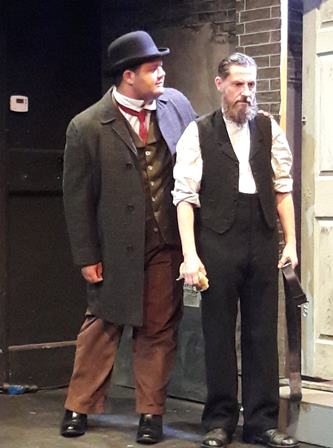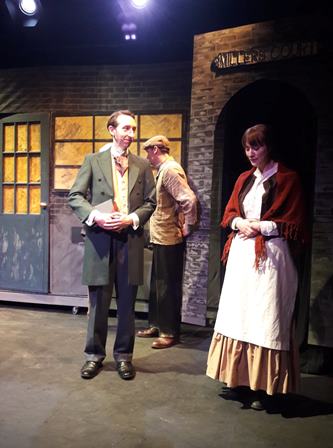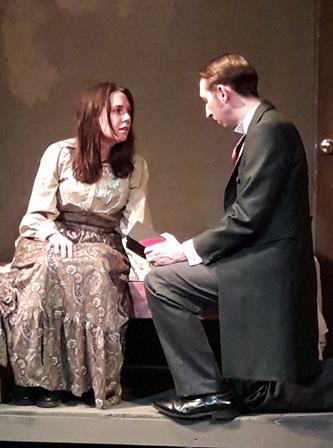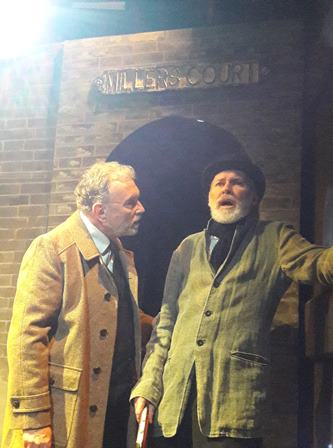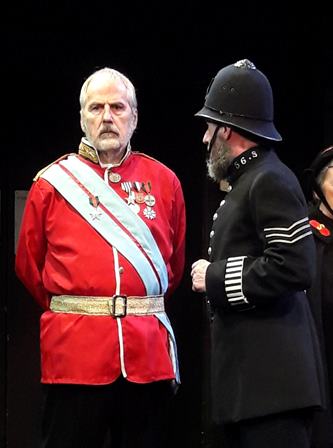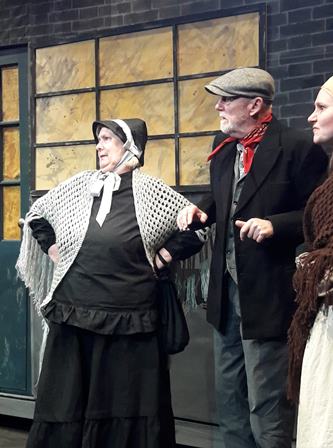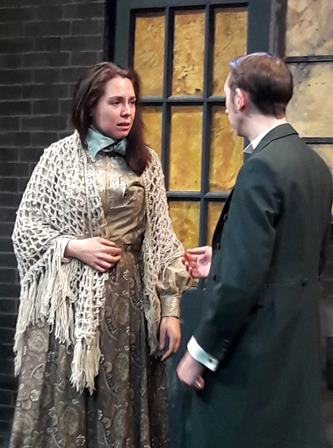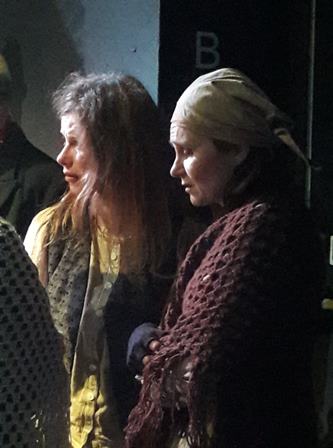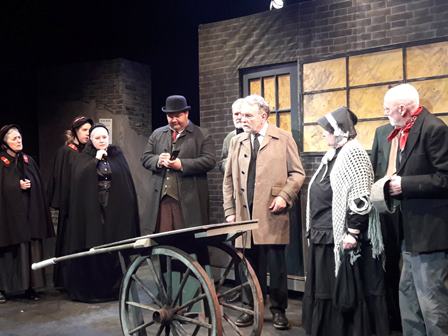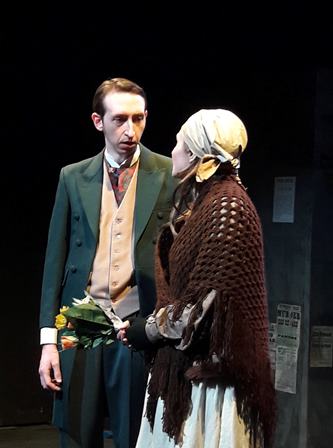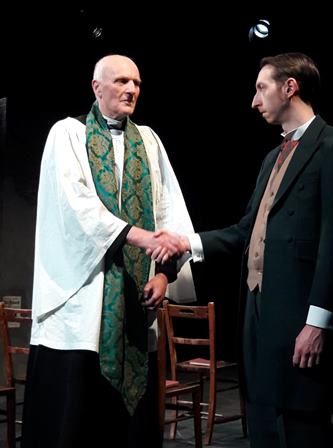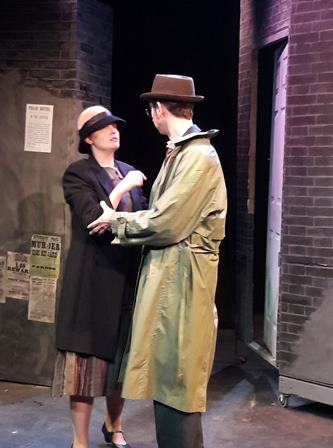The Bench Production
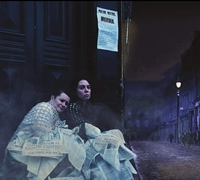
This play was staged at The Spring Arts and Heritage Centre (formerly Havant Arts Centre), East Street Havant - Bench Theatre's home since 1977.
Cast
| Isobel Prater | Leila Millson |
| Mary Jane Kelly, Eliza May Blake and Sister Bradley | Alex Eels |
| Lil Blake and Henrietta Barnett | Laura Sheppard |
| Charlotte Bower | Charshy Nash |
| Helen Shawcross | Hayley Cleghorn-Blair |
| Frankie Mulligan, P.C.Sexton and Second Workman | Brandon Cable-Rogers |
| Charles Mason, Thomas Bowyer and Charles Booth | Vin Adams |
| Fletcher and Billy Straw | Pete Woodward |
| Arthur Smythe | Tyrone Baptiste |
| Joe Barnett and Christian Lane | James Andrews |
| George Duffy, Matthew Chandler and P.C.Bennett | Steven Foden |
| Sgt.Tom Smythe, Mr Thorne and First Workman | Henry Oastler |
| Rev.Samuel Barnett and Sir Charles Warren | Roger Wallsgrove |
| Margaret Harkness | Amanda Saunders |
| Homeless Woman and Rosalind Lane | Kerrie Thirlwell |
| Mrs Frank and Old Charlotte | Sue Bartlett |
| Mrs Rhoper and a Slum Lassie | Di Wallsgrove |
| Mrs Ford, Mrs Crouther and a Slum Lassie | Bethany Howard |
| John McCarthy and Doctor Rayment | David Penrose |
| First Coffin Bearer | Katie Watson |
| Second Coffin Bearer | Brendan McCarthy |
| P.C.McCrae, Homeless Man and Rev Prater | Chris Wrein |
Crew
| Director | Ben Tanner |
| Producer | David Penrose |
| Stage Manager | David Penrose |
| Assistant Stage Manager | Sally Hartley, Natasha Ryszka- Onions, Jessica Jones |
| Lighting Design | Phil Hanley |
| Sound Design | Howard Alston and Jacquie Penrose |
| Lighting Operation | Phil Hanley |
| Sound Operation | Jacquie Penrose and Mike Jones |
| Set Design | David Penrose and Ben Tanner |
| Set Construction | Julie Burt-Wood |
| Costume Design | Di Wallsgrove |
| Brochure and Flyer Design | Dan Finch |
| Programme Editor | Derek Callam |
| Front of House | Sally Hartley |
| Photography | Jacquie Penrose |
Director's Notes
'It is the tragedy of defeated life, and not the calm of triumphant death, that should appeal to our hearts and imaginations.'
The Star Newspaper, 24th September 1888.
Seven years ago, my good friend, knowing my keen interest for true crime, thrust a whole host of 'Ripper' books at me and told me to "read them and tell me what you think". Significantly, he added: "as fascinating as the crimes are, the world that surrounds them is even more fascinating" - he was not wrong.
Usually in gold or, quite deliberately, red lettering, on hundreds of books published over the last century is a name that captures our imagination like no other - Jack the Ripper. Ask anyone and they will have heard those words and know something of the foul crimes they relate to.
Say the names Polly Nichols, Annie Chapman, Liz Stride, Kate Eddowes or Mary Kelly and few recognise them for who they are – his victims, who alone The Ripper owes his legend to as the most celebrated serial killer of all time.
Still fewer people realise that these 5 tragic women were amongst 1000s of men, women and children who lived in the East End, some of the most deprived streets in Victorian Britain. Those same Whitechapel thoroughfares that, 134 years ago, played host to The Ripper's work, still echo with word of his deeds. Nightly, scores of people tread in his footsteps, hoping to glimpse at the traces of evil ingrained in the cobbles and brickwork that formed stage and backcloth to the murders, as their tour guide stirs their imagination, speaking the unspeakable.
Delving deeper into my 'Ripper' books, where curiosity had once lead me now conscience guided the way. I was struck by the plight of these women and the terrible circumstances of their lives. Victorian Britain made no attempt to assist a person whose life had gone wrong, but instead watched and condemned them as they fell into the ash pan. The East End became a collecting point for these 'unfortunates', a term constructed by the Victorians to label anyone who had fallen through the rungs of respectable society.
As I read of Polly, Annie, Liz, Kate and Mary's irremediable descent into the stews of Whitechapel, my conscience sparked in me a crusade to provide them and their unfortunate class with a voice. Along the way I also met in my reading the social reformers and pioneering journalists - the real legends - that history has forgotten, who sought tirelessly to improve the poorest lives living in the darkest corner of the British Empire. For well over a century, Jack the Ripper has basked in an ill gotten fame we have cultivated through our misdirected fascination in him. It is time to shine a spotlight on the stories of those that fell beneath his knife - they were falling long before evil found them, they were victims long before they hit the ground. Welcome to Whitechapel.
This play is dedicated to Polly, Annie, Liz, Kate and Mary and to my father, Martyn Tanner, who supported and encouraged my creativity all my life and continues to do so.
Best friends forever, Dad.
MARTYN TANNER
1947 - 2018
Ben Tanner, Author and Director
Reviews
The NewsJames George
Bench Theatre have, once again, stepped up to the creative mark with their latest offering – The Unfortunate – at The Spring in Havant.
Grounded firmly in writer/director Ben Tanner's fascination with the 1888 Autumn of Terror in Whitechapel, the play contrives a love-story against the background of those events.
Of the five women generally accepted as Jack the Ripper's victims, only one appears in the play – Mary Jane Kelly - his last and most ferocious, his curtain-call to the world.
The others suffer their undignified deaths sometimes almost as an aside; I'm not sure victims three and four were actually named until the end of the piece. This is not a criticism. In light of the story Tanner wants to tell, it works nicely.
The central characters are another prostitute, Isabel Prater, and a journalist who makes it his mission to rescue her, Christian Lane.
As these two, Leila Morello and James Andrews impress mightily. Both underplay the stylised Victorian dialogue which others in the cast struggle with. There is nothing surprising about the development and conclusion of their relationship, but that doesn't diminish its effectiveness.
These two performances are worth your ticket-money alone.
Vin Adams, as newspaper-editor Charles Mason, subtly gives the unsubtle arrogance of the man and Henry Oastler works beautifully as a somewhat corrupt police-sergeant.
The script itself, when firing on all cylinders (which is very often indeed) works beautifully. Tanner's use of language can be breathtaking and surprising and filled this old language-lover's heart with joy.
As a director he also uses his cast to paint striking pictures against a clever set. Very pleasing indeed.
With a large cast of more-often-than-not untrained actors, there's bound to be variety in the quality of the performances. Some of them here need more precision – there were fluffed lines a-plenty and some terrible diction left a lot of lines as mush in the air.
The aforementioned clever set also adds to an already long running-time. It twists and extends and clips to other parts of itself to give us twenty-or-so locations but requires manhandling into position by members of the company. It is truly a shame that this aspect oftentimes holds up the action.
The script also needs a huge amount of editing for any future productions. Act 1 alone, on opening night, ran to one hour and forty-five minutes and Act 2 didn't come down until ten-forty. It's hard-going on the nether-regions, believe me!
A bullet must be bitten and a red pen wielded mercilessly to make a promising first play into something really rather impressive.
Production Photographs
